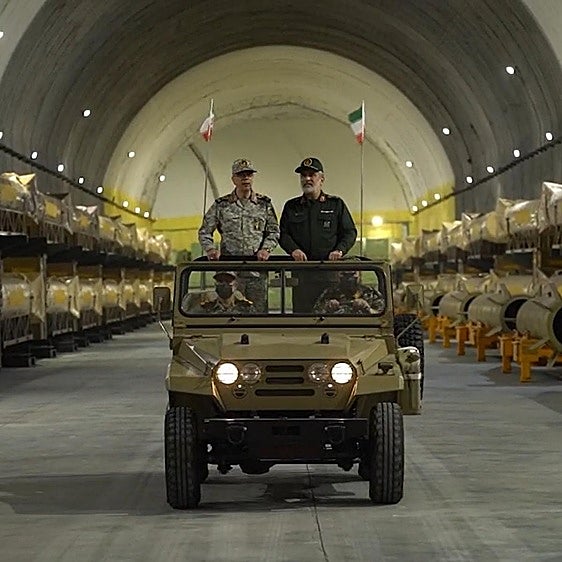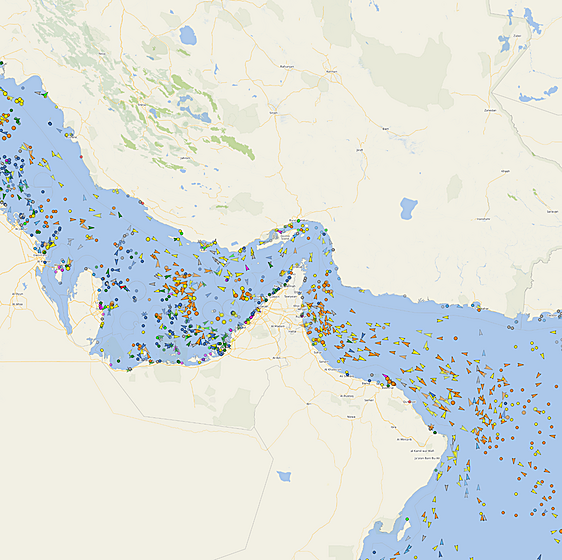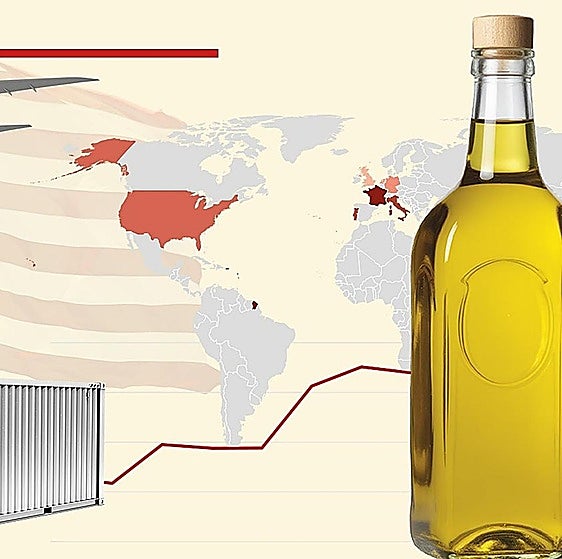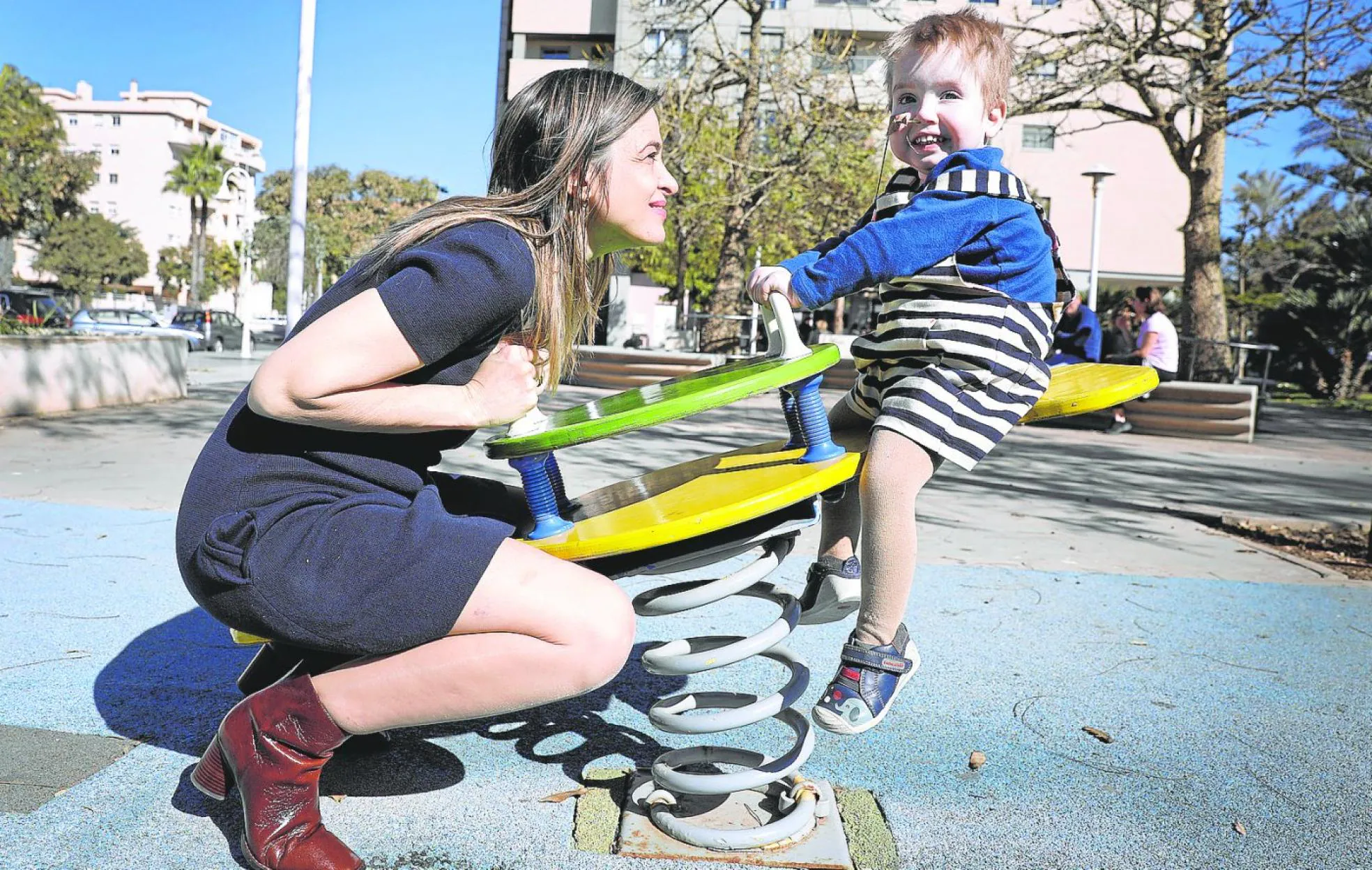The fight for Marco, the boy with no copper
He is the first person in the world to receive a pioneering treatment against the rare Menkes disease
REGINA SOTORRÍO
Friday, 10 February 2023
Aurora Mateo talks about a matter of life or death while Marco plays, oblivious to everything, in the sand on the beach at Huelin, in Malaga. Nobody there suspects that this blue-eyed boy was born with a fatal diagnosis, and the certainty that his time here will be short. He has been diagnosed with Menkes, a rare illness that affects copper levels. And without copper, "the body's third mineral, as I now know," says his mother, he cannot survive.
Most children with Menkes die in early childhood after progressive deterioration. "The worst thing is having to carry on without hope; I don't know how you do that," says Aurora with disarming poise and dignity.
But Marco is now two and a half. Last weekend was the first time in a month he had been outside. "He has had pneumonia," Aurora says, and he is wearing a nasogastric tube for feeding and to recover his strength. But he is lively, smiling, hugging his mother, and playing with her hair. He waves at the plane that flies overhead and wants to go on the see-saw in the park, just like every child of his age, but he is not like the rest.
Marco is the first in the world to undergo a pioneering and experimental treatment for Menkes, and not only is it working but his case has mobilised a number of scientists from all over the world which is unprecedented in the 40-year history of this illness. But they need help in order to carry on.
On Saturday 11 February a charity lunch will take place at the Russian Museum, organised by the cultural centre itself and the Foundation of Friends of the Russian State Museum of Malaga (FAMER), to raise funds and awareness of the illness.
Support is urgently needed for the line of research opened by Marco, to advance the knowledge of Menkes. His mother rebelled against the prognosis and found a possible way out of the situation: in 2020, the year in which Marco was born, Science magazine published an article on a successful experiment on mice to combat this illness. It had not been tested on humans, and to do so would require hundreds of tests, millions of euros and ten years. Marco didn't have that long. But Aurora, a consultant at the FAO, did not give up. She began contacting hospitals all over Europe to try to find a team who would commit to this treatment. "They told me I was crazy, that you can't go from testing on mice directly to humans. But, what alternative was there?" she says.
And then she approached the Hospital de Sant Joan de Déu in Barcelona, where pediatrician and geneticist Francesc Palau immediately joined the race to save Marco's life. The results on mice were very encouraging, he said, and it needed to be tried.
A team from the hospital developed the exceptional treatment without prior clinical testing, but with the advice from dozens of scientists on a committee to design the protocol. Among them is Dr Yusuf Hamied, honoris causa from Cambridge University and well known on the Costa del Sol for his contribution to the Cudeca hospice foundation. He has been a key player in the production of the medication.
Marco began to receive the drug in January 2021 'in extremis', when his pulmonary fibrosis got worse and doctors were very concerned. At first he had to go to Barcelona every week for the injection, and now it is every other week. Since then he has only been in hospital once and he has a quality of life that seemed impossible for children with Menkes, patients who suffer a rapid deterioration of their nervous system.
Thanks to the advances achieved and the Menkes International association, another baby from León has just started having the same treatment.
Now is the time to make this better-known, to talk about what has been achieved and to raise funds to continue, because they cannot continue to do this alone. It is also time to spread the word about a syndrome which is practically unknown, as that makes early diagnosis difficult. And that is vital.
In a Menkes baby, the copper does not cross the brain threshold, so the blood cannot distribute it to the organs. If a newborn baby does not receive specific care within the first ten days, its life expectancy in the short term is zero. Receiving this treatment does not guarantee survival, but it allows for "a gentler death," the experts say.
Marco was born in Rome, where his mother (who is from Malaga) was working at the time, and was lucky enough for a doctor to notice his patchy hair and do a test, something that does not always happen.
That is why Aurora is fighting for the test to be incorporated into the heel prick test, for there to be more research, for a Menkes Centre to be set up. In short, to keep death at bay. It is her way of "fighting against insanity," she says, "because I still wake up and can't believe this is happening".
She needs to bring hope for parents who at present only ring her to let her know when a funeral will take place. "And I will carry on fighting until things change," she insists.



